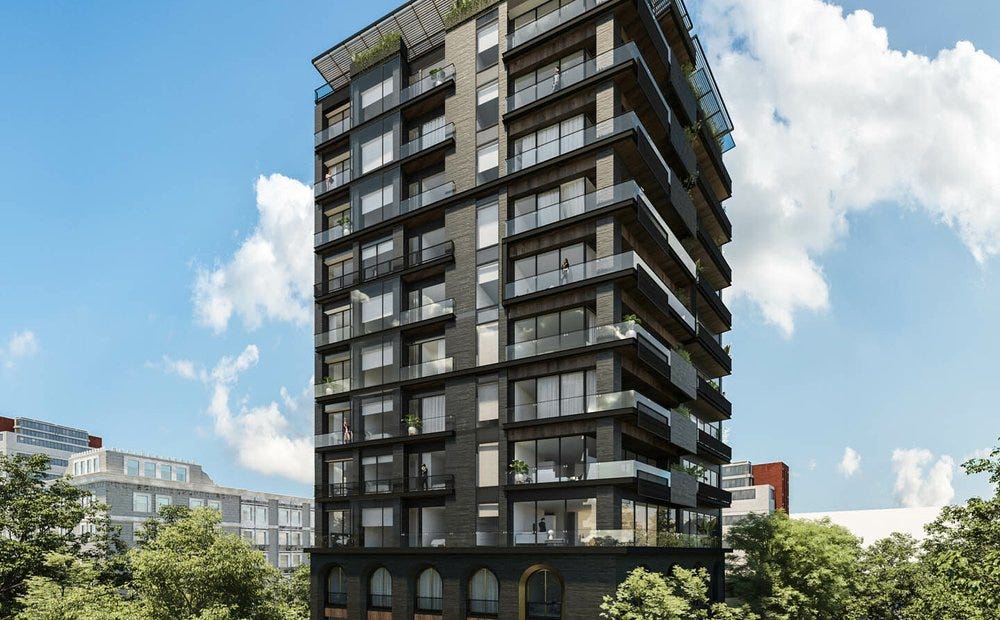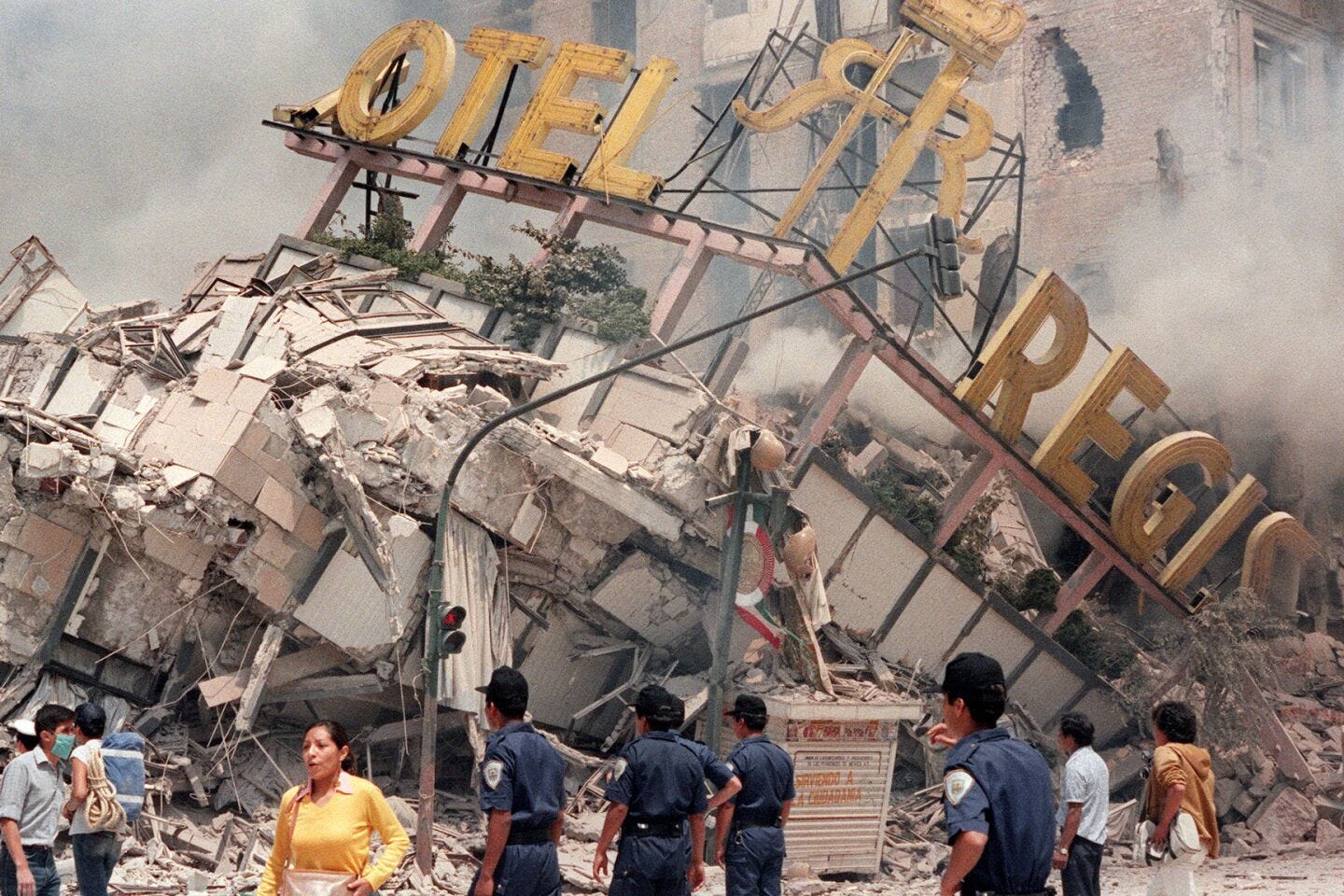Mexico's Housing Market Will Collapse
Many Americans are leaving the United States due to high housing costs and moving to Mexico in search of cheaper housing. While foreigners view Mexican property and rental prices as cheap, many Mexicans feel they are being pushed out of their neighborhoods due to the high cost. Some have taken to protesting and threatening foreigners, painting them as gentrifiers. As a result, Mexican cities, especially Mexico City, have become much more expensive. Property owners have raised prices so high in some areas that one-bedroom apartments are costing upwards of $2,000 a month. Some are complaining, but still paying the price because it is still better than living in the US. However, I believe this is a sign of an upcoming housing collapse that no one is thinking about.
Background:
Let's go back to September 19, 1985, when Mexico City was devastated by an earthquake that left over a quarter of a million people homeless, while another 100,000 were forced to leave their homes due to damage. Not only did this destroy the livelihoods of many in the city, but the damage also echoed throughout the country's markets.
Then in 1994, Mexico embarked on a hasty plan to pay off debts and attract foreign investors. They decided to peg the peso to the dollar. Unfortunately, the market speculated against the false overvaluation, forcing the government to devalue the peso. Overnight, 50 billion dollars were wiped out of the market, and the only saving grace was for the US Congress and President Clinton to pass the Mexican Debt Disclosure Act of 1995. This act provided billions in financial assistance and securities guarantees using American taxpayer dollars and IMF bailouts.
Again, hundreds of thousands lost their jobs and the ability to pay their mortgages or rent for the houses where they lived. From there, social organizations dedicated to occupying abandoned houses and negotiating with the owners for renovations and sale to the occupants were created.
Current Events:
In the last 10 years, foreign investors have taken advantage and created companies attempting to solve the housing crisis in Mexico. However, there is still a laundry list of requirements that must be met. In order to rent in Mexico, you either have to pay an extremely high insurance premium, multiple months upfront, or have a cosigner.
The catch in Mexico City is that the cosigner must own property within the city. While housing is highlighted as being lower cost than in America, Mexican wages are still nowhere near sufficient for many people to own houses. To make it worse, developers have been pushing for "luxury" constructions (while still providing substandard builds) for the last two decades. The average urban family still makes less than $900 USD a month.
While Americans are flustered over high-interest rates, the average mortgage interest rate in Mexico hovers between 9% and 13%. With much of Mexico still "unbanked," many have no access to credit, let alone the ability to prove income to be granted a loan
AirBNB:
In 2019, Airbnb announced a partnership with the Mexican government to promote sustainable tourism in rural communities and support local artisans. The company also launched a campaign to promote lesser-known destinations in Mexico, highlighting the country's cultural and natural diversity. Despite some backlash from the hotel industry and locals, Airbnb's collaboration with Mexico has continued to move forward.
For years, speculators have exploited this situation to their advantage. It began with local landlords renting properties exclusively to tourists to maximize profits. However, now individuals and companies are purchasing and refurbishing properties with the sole purpose of renting them out on Airbnb. In certain areas, entire buildings have been converted into high-priced Airbnb units. While I won't dispute the short-term impact such as noise complaints, these areas have become increasingly expensive, not only for locals but also for expats. Property values are significantly inflated and vulnerable to market disruptions.
U.S Airbnb Collapse - In previous years, numerous American Airbnb speculators were devastated by overleveraging properties with the exclusive goal of renting them out. When vacations were put on hold, expenses had to be paid, and many of them went bankrupt. I know a few people who foolishly overleveraged a dozen or more properties that they rented out themselves or gray-area listed on Airbnb. Additionally, the dollar has lost a considerable amount of value in the last few years, decreasing from 22:1 to 18:1 compared to the peso. Therefore, I anticipate a comparable collapse in Mexico.
Tourist Hubs:
The Riviera Maya, a stretch of Caribbean coastline in Mexico's Yucatan Peninsula ( I consider this Cancun, Playa Del Carmen and Tulum, has seen a surge in real estate investment in recent years. However, the area's rapid development has resulted in an increase in pollution, endangering its pristine beaches, coral reefs, and mangroves. The region is also prone to natural disasters, such as hurricanes and tropical storms, which can cause significant damage to property.
While the Riviera Maya has seen an increase in tourism, there is no guarantee that interest will continue to grow, and the area may become overdeveloped and lose its allure. Similar to Acapulco, which was once a popular destination for tourists and real estate investors but has since fallen out of favor due to crime and pollution, the Riviera Maya may suffer a similar fate.
In recent years, there has been an increase in cartel-related crime in the Riviera Maya region of Mexico. In August 2021, there were multiple shootings in the area, including one at a popular beach club. These incidents have raised concerns about the safety of tourists and locals alike. While the Mexican government has stepped up security measures, such as deploying more federal police and military personnel, the violence continues to be a problem. Given that tourism hubs can change quickly, so it's not unlikely that tourists will start exploring other areas, such as the Merida or Oaxaca coasts.
Foreign interference:
Homex:
I wrote a thread on Twitter about Fraccionamientos - essentially cheap subdivisions created in the hope of solving the housing problem. However, on further review, I'm led to believe that the company behind it may have seen this purely as a cash machine with no regard for its long-term effects.


The government succeeded in attracting investors. In 2002, Sam Zell poured $32 million into the Mexican construction company Homex in order to create housing throughout Mexico. Over the next couple of years, the company was building over 50,000 houses a year, reaching a valuation of over $3 billion before Zell cashed out at around $500 million and the company went bankrupt.
Homex developments were riddled with infrastructure and construction defects, and residents abandoned them by the thousands, triggering another collapse of the housing industry in the span of a decade. In 2017, it was found that Homex also falsely reported the sale of over 100,000 homes to boost its valuation. Zell has not been named in any cases and seems to not mention his investment anymore.
BlackRock:
BlackRock, one of the largest investment firms in the world, has been involved in Mexican real estate for several years. In 2013, the company created a joint venture with Mexican firm Hines to develop office buildings and shopping centers in major cities such as Mexico City and Monterrey. BlackRock has also invested in Mexican real estate investment trusts (REITs), including Fibra Uno and Fibra Danhos, which own a variety of commercial properties such as shopping malls, hotels, and office buildings.
BlackRock's involvement in Mexican real estate highlights the growing interest among international investors in the country's property market. However, it also raises questions about the long-term effects of foreign investment on Mexico's housing affordability and sustainability.
Blackrock, which is credited with buying up homes in the U.S., has also made large investments throughout Mexico in the last decade, including their 2018 acquisition of Citibanamex’s Asset Management Portfolio. This gave them an additional $31 billion in assets spread across more than 50 mutual funds.
Conclusion:
The recent influx of foreigners has nothing to do with the increased prices of real estate and rentals. This is an issue that hasn’t been properly addressed in decades. Foreigners have just become the new scapegoat for problems in Mexican cities.
If America is headed towards a housing collapse, Mexico will likely be hit even worse due to its much lower average income earning. Throughout Mexico, you still see advertisements for new builds and plans popping up at prices thousands of times higher than the average income. While foreigners are assuming they are getting a deal, I expect many investors to get wiped out in the coming years when their overpriced apartment becomes worth a fraction of its purchase price, or in the case of Mexico City, an earthquake again devastates many buildings.





